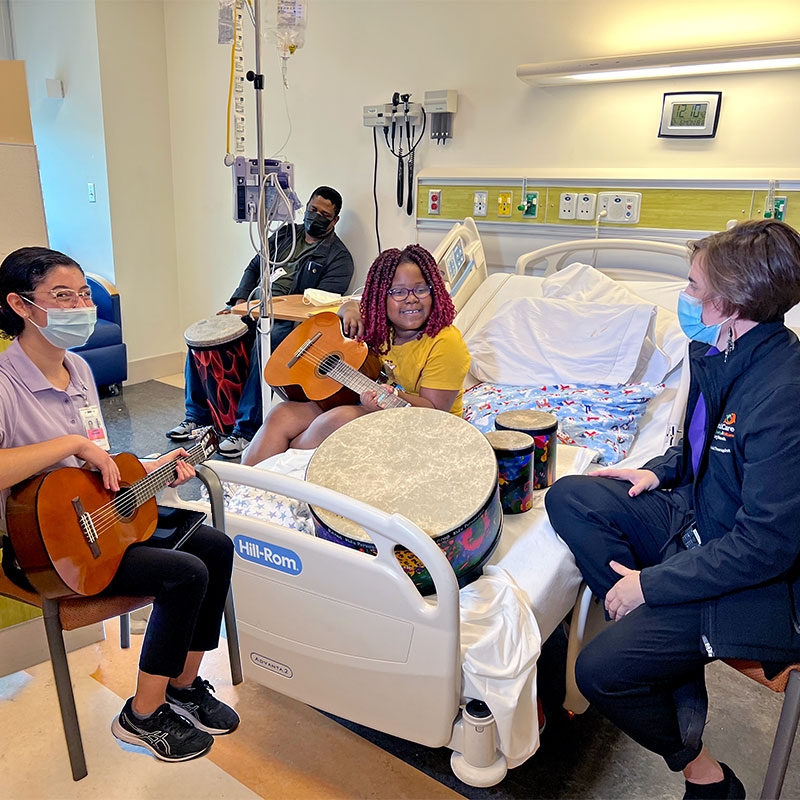The MemorialCare Cherese Mari Laulhere Pediatric Intensive Care Unit care team, music therapists, and research team are examining how music therapy can minimize the use of sedatives for hospitalized children. Music therapists collaborate with registered nurses to offer music therapy to patients experiencing agitation, anxiety, and discomfort.
The music therapy program at the Cherese Mari Laulhere Pediatric Child Life Program has grown over the years thanks to funding by the Music Man Foundation. The program began with one music therapist and has grown to now have five. The music therapists are board-certified and are trained to assess each patient’s individual and unique needs. When they assess the child, they assess them emotionally, cognitively, physically and socially. From there, individual goals are set by their music therapist.
“Music is a positive and powerful way to cope,” says Ruth Gonzalez, MTBC, music therapist, Cherese Mari Laulhere Child Life Program. “Our sessions give them the opportunity to express themselves, provide comfort when they feel pain, and allow them to make choices and feel in control. Music can be a great distractor.”
During music therapy, soothing musical elements are implemented through the use of guitar, singing, and deep breathing techniques to aid in comforting patients. If a patient is feeling anxious or needs comfort, specific techniques have the ability to help lower their heart rate. They can also be taught breathing techniques to promote relaxation.
One of the main goals of the music therapists is to offer family centered care, putting great emphasis on forming a connection with patients’ families. They strive to normalize the hospital environment, as it can be an uncomfortable and an unfamiliar situation for children and teens. Whichever music the family listens to or is special to them is often incorporated into their sessions. During their therapy, PICU patients participate in sessions that are personalized to their needs. Some children will be given guitar lessons to help motivate them to use their hands. A different patient may have a music therapist sing them their favorite song to help process their emotions through music.
One of their end-of-life legacy projects is songwriting. For end-of-life patients, a unique and special gift is offered to the families. The family writes a song about the patient, the child’s heartbeat is recorded, and the song is edited with the heartbeat and put into a stuffed animal for the family to keep.
When a patient is discharged, music therapists refer the patients to free music programs partnered with organizations such as Music RX and Ukulele Kids Club. Music Rx offers free music lessons, and Ukulele Kids Club donates ukuleles that patients can take home and are given free tutorials via their website.
Ruth shares her passion about helping children in the MemorialCare Cherese Mari Laulhere Pediatric Intensive Care Unit. “My favorite part about working with the care team is to help kids regain skills needed for everyday life,” she said. “I can help them use their voice again, regain expressive communication skills, or motivate them through instruments, and that is so fulfilling for me.”

